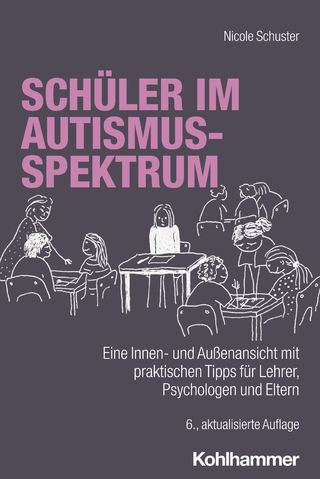
The Ethnic Imperative
Examining the New White Ethnic Movement
Seiten
1990
Pennsylvania State University Press (Verlag)
978-0-271-00508-9 (ISBN)
Pennsylvania State University Press (Verlag)
978-0-271-00508-9 (ISBN)
- Titel ist leider vergriffen;
keine Neuauflage - Artikel merken
The New Ethnicity is characterized more by a cutting of roots than a cultivation of them, particularly among descendants of recent European immigrants to America. The authors hold that the American Dream, including its melting pot imagery, was sought by immigrants from Ireland or eastern, central, and southern Europe, not imposed by xenophobic WASPs. Thus The Ethnic Imperative is partly a rejoinder to apologists for the New White Ethnic movement, partly a sympathetic critique of the movement and, by extension, of all movements premised on the biosocial nature of ethnicity.
Three centuries of Euro-American history are reviewed in order to establish a psycho-social base from which to view the New Ethnicity as what La Barre calls a "crisis cult." A distinction is made between current ideological ethnicity and the prior unselfconscious behavioral ethnicity. The latter subsumes the preservation of intracultural values while the former involves a rejection of the American Dream. The liberating American Dream is contrasted with the equally powerful—and often constraining—doctrine and practice of American Conformity.
The post-World War II period of liberation for recent Americans is viewed psychoanalytically as the triumph of the "son" generation, while the assassination of idealized leaders symbolized loss of faith in the American Dream. Mounting rebelliousness by youths and Blacks led many "white ethnics" to embrace neo-fundamentalisms and neo-orthodoxies. The traditional "Southern" ethos of localism and separatism, with which the New White Ethnicity is often compared, is shown as a recurring nationwide rationalization of caste or race position—no matter how unrewarding that position may be. La Barre calls it "one-downmanship."
Implicitly, The Ethnic Imperative is a brief for the American Dream of "E pluribus unum." And as Weston La Barre says of the authors in his foreword, "their ideas will have a still wider bearing in the future world village."
Three centuries of Euro-American history are reviewed in order to establish a psycho-social base from which to view the New Ethnicity as what La Barre calls a "crisis cult." A distinction is made between current ideological ethnicity and the prior unselfconscious behavioral ethnicity. The latter subsumes the preservation of intracultural values while the former involves a rejection of the American Dream. The liberating American Dream is contrasted with the equally powerful—and often constraining—doctrine and practice of American Conformity.
The post-World War II period of liberation for recent Americans is viewed psychoanalytically as the triumph of the "son" generation, while the assassination of idealized leaders symbolized loss of faith in the American Dream. Mounting rebelliousness by youths and Blacks led many "white ethnics" to embrace neo-fundamentalisms and neo-orthodoxies. The traditional "Southern" ethos of localism and separatism, with which the New White Ethnicity is often compared, is shown as a recurring nationwide rationalization of caste or race position—no matter how unrewarding that position may be. La Barre calls it "one-downmanship."
Implicitly, The Ethnic Imperative is a brief for the American Dream of "E pluribus unum." And as Weston La Barre says of the authors in his foreword, "their ideas will have a still wider bearing in the future world village."
Howard F. Stein and Robert F. Hill have written widely on American ethnic groups since starting on their doctorates in anthropology at the University of Pittsburgh, where both were Maurice Falk Medical Foundation Fellows. Dr. Stein is a member of the Department of Psychiatry, Community Mental Health Center, Meharry Medical College. Dr. Hill is a member of the Department of Family Practice, Community Medicine and Dentistry, University of Oklahoma Health Sciences Center.
| Erscheint lt. Verlag | 1.10.1990 |
|---|---|
| Verlagsort | University Park |
| Sprache | englisch |
| Maße | 152 x 229 mm |
| Gewicht | 603 g |
| Themenwelt | Geisteswissenschaften ► Psychologie ► Familien- / Systemische Therapie |
| Geisteswissenschaften ► Psychologie ► Sozialpsychologie | |
| Sozialwissenschaften ► Ethnologie | |
| Sozialwissenschaften ► Soziologie | |
| ISBN-10 | 0-271-00508-4 / 0271005084 |
| ISBN-13 | 978-0-271-00508-9 / 9780271005089 |
| Zustand | Neuware |
| Haben Sie eine Frage zum Produkt? |
Mehr entdecken
aus dem Bereich
aus dem Bereich
Lehr- und Lernbuch für die Approbationsprüfung Psychotherapie
Buch | Softcover (2022)
Deutscher Psychologen Verlag
CHF 69,95
Buch | Softcover (2023)
Kohlhammer (Verlag)
CHF 49,95
eine Innen- und Außenansicht mit praktischen Tipps für Lehrer, …
Buch | Softcover (2024)
Kohlhammer (Verlag)
CHF 39,95


